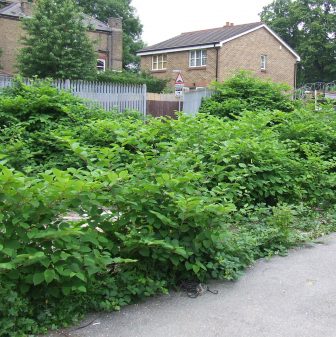 A homeowner in Wales has won £4,000 from his local authority after Japanese knotweed from a nearby cycle path spread to his garden.
A homeowner in Wales has won £4,000 from his local authority after Japanese knotweed from a nearby cycle path spread to his garden.
The ruling could be significant and prompt a wave of similar action as it has confirmed the right of a homeowner to claim nuisance damages if the plant has invaded from neighbouring properties.
Marc Davies of Nant-y-moel sued Bridgend County Borough Council for “residual diminution”, claiming that the presence of knotweed, even after treatment, had damaged the value of his terraced property as it prevented him from landscaping and building in the garden.
Initially, judges told Davies that the law did not allow for nuisance damages to be paid for “pure economic loss”. However, the homeowner won the case in the Court of Appeal after it confirmed the right for homeowners to claim on the issue.
Ruling on the case, appeal judge Lord Justice Birrs said the diminution in value was “consequential on the nuisance” and there was no law stating that “consequential damage to the claimant’s economic interests is irrecoverable”.
He added: “Once that natural hazard is present in the claimant’s land – to a non-trivial extent – the claimant’s quiet enjoyment or use of it, or putting it another way, the land’s amenity value, has been diminished. For the purposes of the elements of the tort of nuisance, that amounts to damage and it is the result of a physical interference.”
Tom Carter, the barrister who represented Davies at the Court of Appeal, said the case “confirms that a homeowner who suffers a loss in the value of their home from the stigma left by Japanese knotweed even after it has been treated can recover damages for that loss”.
Carter added: “If the Court of Appeal had decided against the claimant, it would have meant that hundreds of homeowners would have no remedy when buyers pulled out or made reduced offers and they would be left out of pocket.”


Comments are closed.